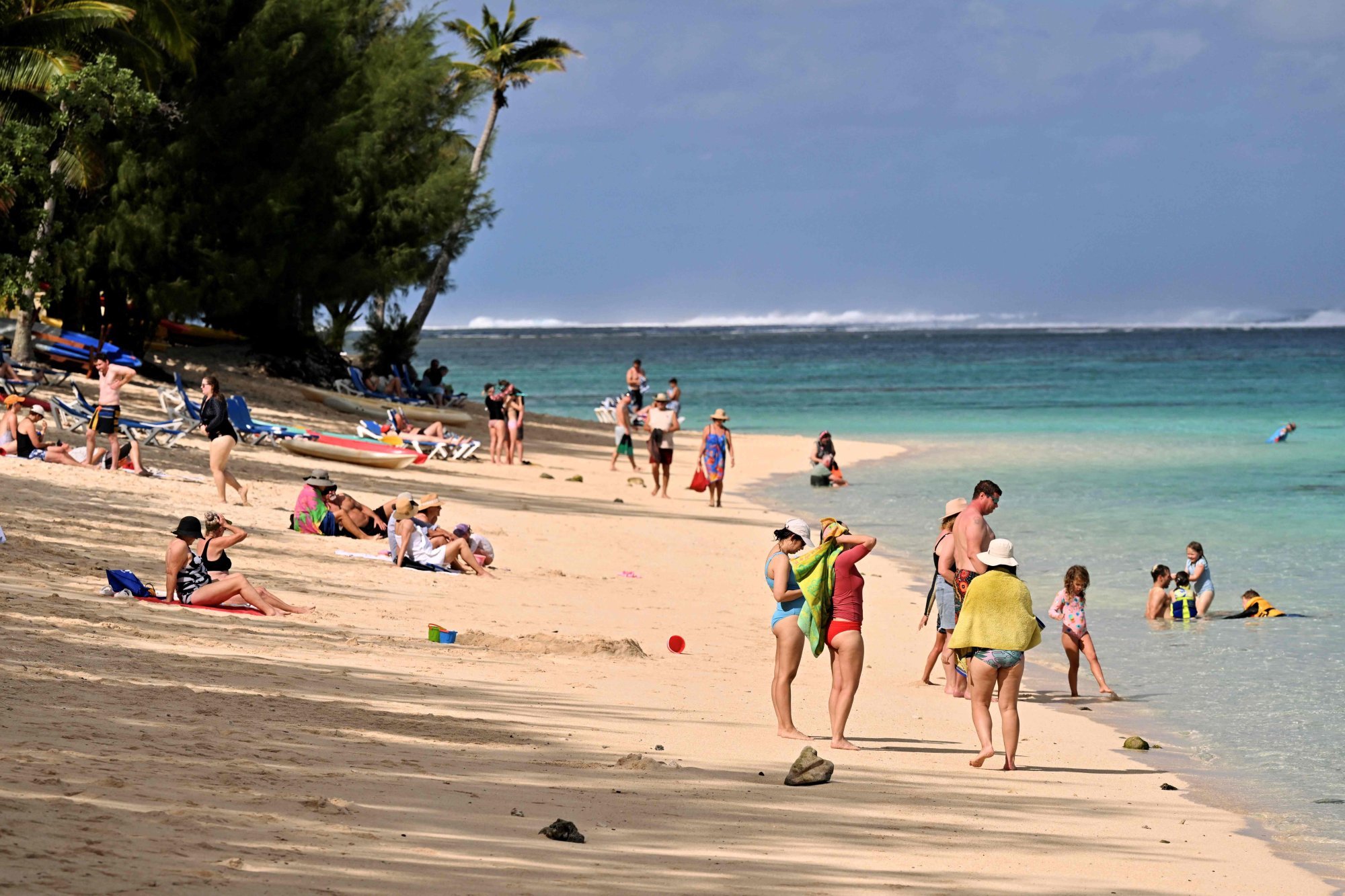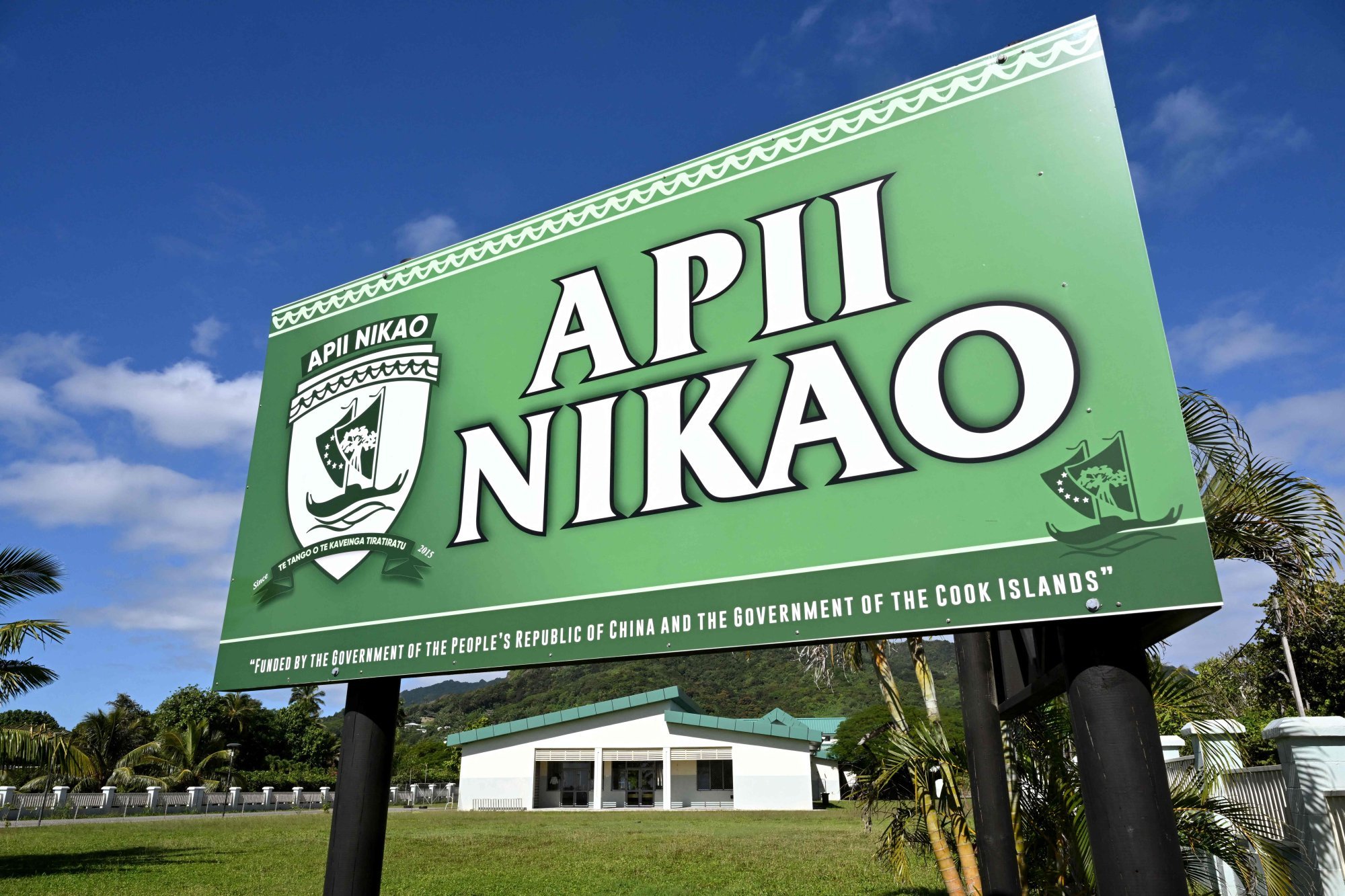Cook Islands aid row spotlights China’s Pacific outreach, New Zealand’s mounting unease
Initially a discreet set of infrastructure agreements between the Cook Islands and China, this situation has now escalated into a diplomatic conflict. New Zealand halting millions in aid and Pacific leaders accusing Wellington of "patronising" behaviour.
New Zealand’s sudden halt in aid has sharply highlighted the nation’s increasing discomfort with China’s rising influence in the Pacific region. This action has prompted regional commentators to caution that such a step might be perceived as “coercive instead of collaborative.”
Wellington declared on June 19 that it was frozen millions of dollars in funds To the Cook Islands, due to insufficient transparency regarding a series of agreements made between the archipelago and China.
Are you curious about the most significant issues and global trends? Find out here with SCMP Knowledge Our updated platform features handpicked content including explanations, frequently asked questions, detailed analyses, and informative infographics, all provided by our prestigious award-winning team.
"We've suspended some of the aid money until we can get clarity on those issues," Prime Minister Christopher Luxon said from Shanghai during his first official visit to China.
Cook Islands Prime Minister Mark Brown hit back the next day by accusing Wellington of being "patronising", contending that the relationship should be "defined by partnership, not paternalism".

In Parliament, Brown upheld his administration’s interactions with Beijing, asserting that such connections do not “undermine” the islands' autonomy and highlighting that no military or defense agreements have been established.
Although the Cook Islands enjoys self-government, it maintains a "free association" with New Zealand, which was once its colonial administrator. Wellington serves as the main financier for the Cook Islands, offering fiscal support along with aid in international relations and defense matters. Additionally, both entities use the same passport.
The accords signed by Brown during his trip to China in February incorporated commitments for infrastructure development and education grants from Beijing. However, some of these agreements were kept confidential at first, which increased doubts in Wellington.
The former Australian diplomat Solstice Middleby told This Week in Asia that the timing of Luxon's announcement appears to be more than just coincidence.
"The suspension of aid from New Zealand during the prime minister’s visit to China seems intended to convey a message to both local and global observers regarding their unease with the strengthening relationship between China and the Pacific region," stated the PhD candidate specializing in Pacific regionalism at the University of Adelaide.
If Wellington fails to express specific issues like transparency, debt sustainability, or dual-purpose infrastructure, its decision to halt aid might be perceived as coercive instead of beneficial.
Middleby contended that the suspension appeared more as an act of punishment for the Cook Islands' sovereign choice, which differed from what Wellington desired, rather than being driven by principled concerns.
She cautioned that the action could bolster a geopolitical story line that portrays Pacific island nations As insignificant pieces in a struggle for power, instead of independent entities striving for their own progress.
Pacific nations have emerged as something of a diplomatic battleground in recent years, coveted for their location astride vital sea lanes and their potential for military basing. Competition between China and the United States along with its partners - including Australia And in New Zealand — has escalated significantly, notably from 2022 onwards, when the Solomon Islands ' security pact with Beijing set off Western concerns about a potential Chinese military presence in the area.
Both parties have intensified their attempts to attract Pacific countries with assistance, commerce, and diplomatic overtures.
However, the consequences of Wellington's aid cut-off are echoing throughout the Cook Islands, leaving the government with an unexpected budget deficit.
The report released earlier this month by the Cook Islands' Public Accounts Committee highlighted a decrease of NZ$10 million (approximately US$6 million) in governmental finances—the initial official acknowledgment of the economic repercussions caused by the funding freeze. These resources were designated for "essential sector assistance," supporting areas such as healthcare, schooling, and tourism, with rigorous oversight from Wellington. In the last three years, New Zealand has allocated NZ$200 million to these islands.
Middleby cautioned that the funding freeze had put pressure on the bond of trust and mutual respect that formed the foundation of the free association agreement.
“If New Zealand keeps using aid as leverage, it might inadvertently speed up the exact diversification of partnerships it aims to avoid,” she said.
The Cook Islands' "free association" with New Zealand began in 1965, followed by a Joint Centenary Declaration in 2001 that required periodic consultations on defense and security issues. Analysts indicate that Wellington feels it ought to have had prior knowledge of the China deals before their signing—a viewpoint reflected in local New Zealand press reports.

Alan Tidwell, who leads Georgetown University's Centre for Australian, New Zealand and Pacific Studies, stated that Wellington likely believed the Cook Islands had “gone too far” and did not involve them sufficiently in discussions.
“Be it a temporary arrangement or a prolonged penalty, Wellington’s reduction in aid will yield repercussions,” Tidwell stated. He further noted that New Zealand’s action seemed deliberate in aiming to exert pressure on the island nation’s administration and possibly incite local dissent.
Although the Cook Islands theoretically has the option to achieve complete autonomy — including issuing its own passport and currency — Tidwell mentioned that it has effectively "closed off this path" by formerly declining to establish its distinct passport.
"The reduction in assistance adds another strain on the Cook Islands to collaborate with Wellington and improve their handling of bilateral matters," Tidwell stated.
He mentioned that New Zealand aimed to "renegotiate" the 2001 accord by "establishing formal consultations to prevent such issues from arising in the future."

Tidwell stated that, as far as he understands, no further high-level meetings will occur until this has taken place.
When attempts to pacify Wellington were unsuccessful, the Cook Islands abandoned their plan to issue their own passports in February.
Beijing maintains that its initiatives are harmless. As stated by Chinese Foreign Ministry spokesperson Guo Jiakun in February, “The collaboration between China and the Cook Islands does not aim at any third country and ought not to be meddled with or limited by any external entity.” He further emphasized that these agreements are designed exclusively to enhance the well-being of the Cook Islands’ population of around 15,000 inhabitants.
Meanwhile, Middleby stated that the aid freeze revealed a more fundamental strain within the core of New Zealand's diplomatic approach towards the Pacific region.
"There is a contradiction between China’s perception of itself as a helpful ally and its unease with Pacific countries pursuing autonomous diplomatic policies,” she stated, noting that this action has increased the distance between smaller Pacific nations and their customary allies.
Additional reporting provided by The Associated Press
More Articles from SCMP
SCMP Top Picks: Gentlemen Legacy could show them how it's done at Sha Tin
Surgical error during appendectomy shines light on safety issues in Hong Kong's public hospitals
'Heaven for the wealthy, hellscape for the impoverished': Hong Kong ranks as one of the globe's most unevenly distributed income cities.
Is India set to become a major player in space exploration? The nation watches closely as an astronaut achieves a significant milestone aboard the ISS, potentially propelling the country forward in this domain.
The article initially appeared on the South ChinaMorning Post (www.scmp.com), which serves as the premier source for news coverage of China andAsia.
Copyright © 2025. South China Morning Post Publishers Ltd. All rights reserved.